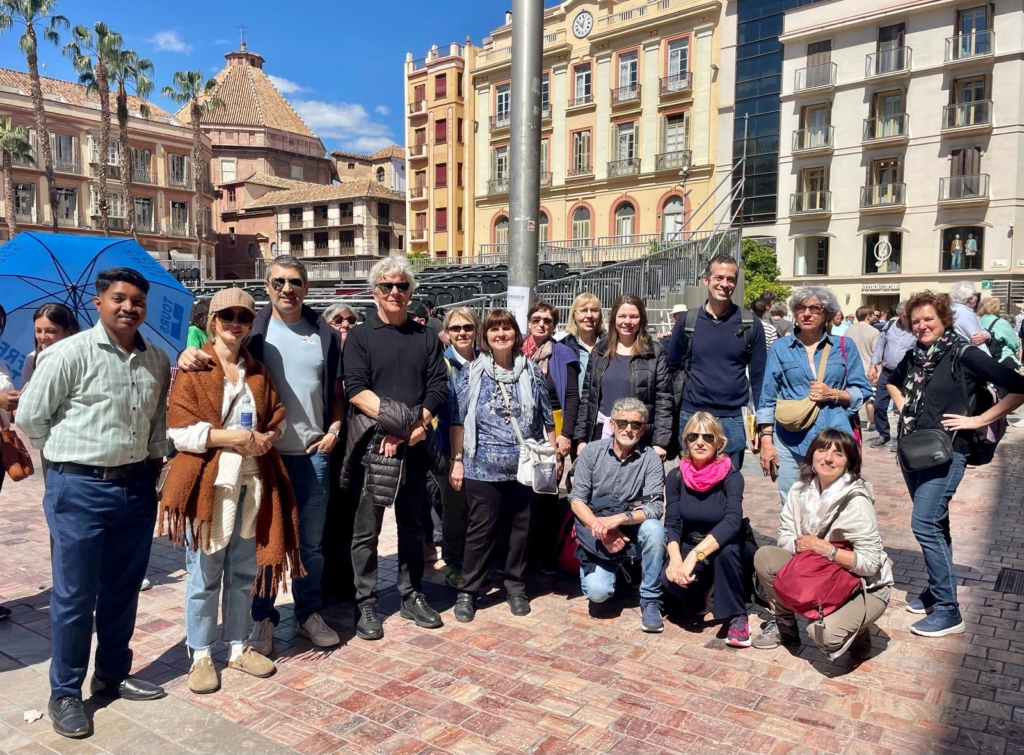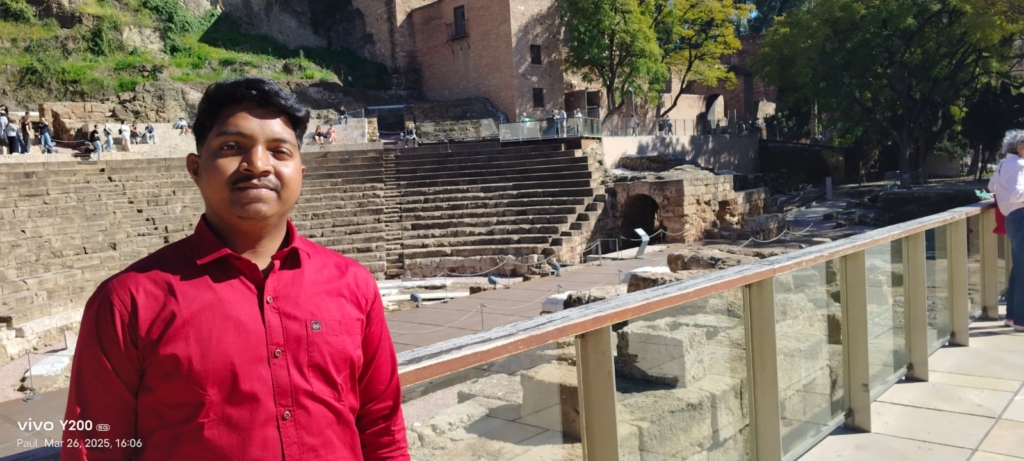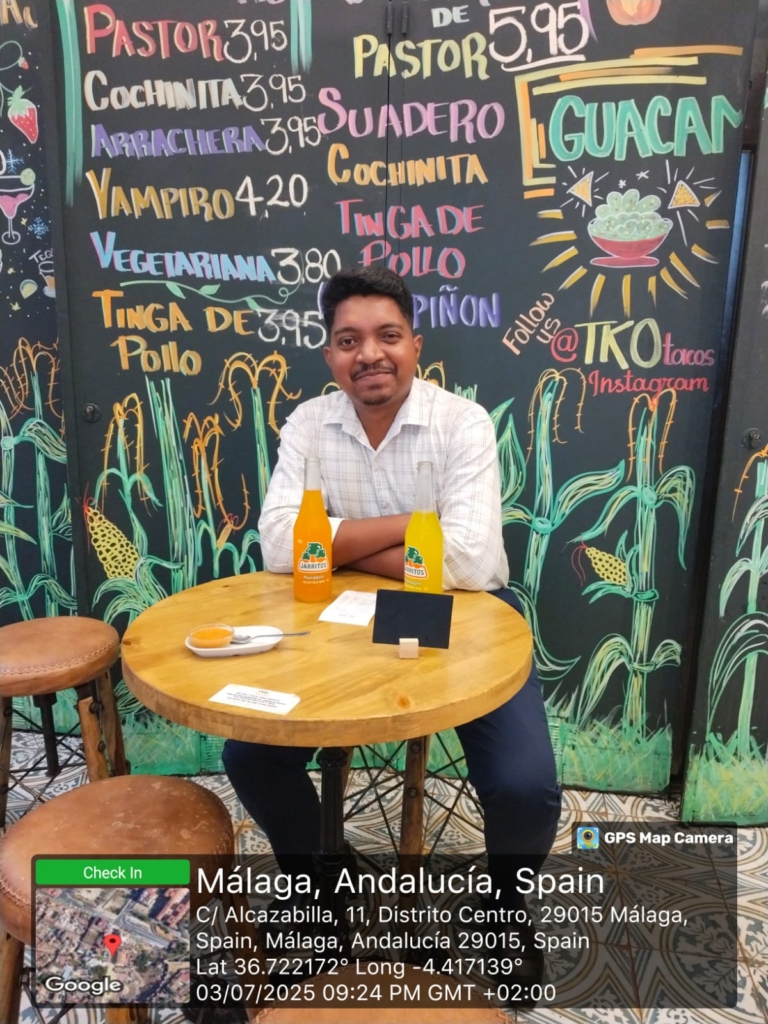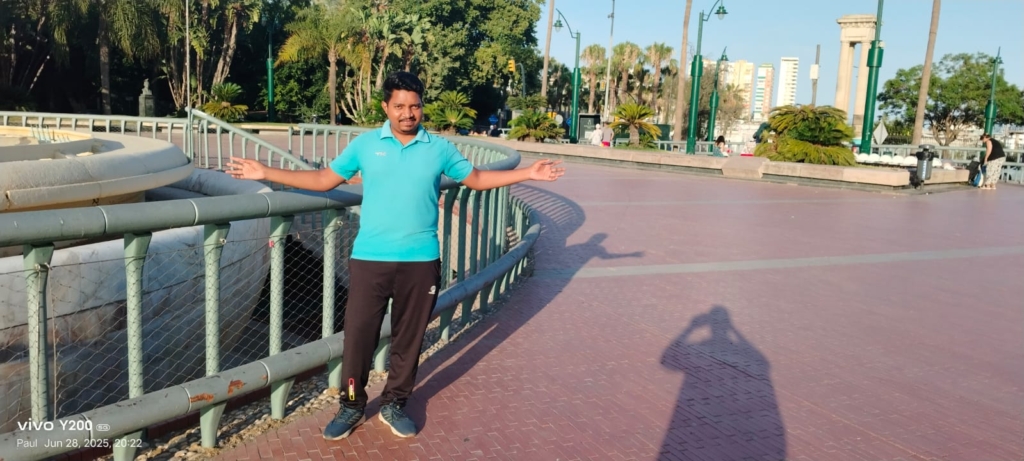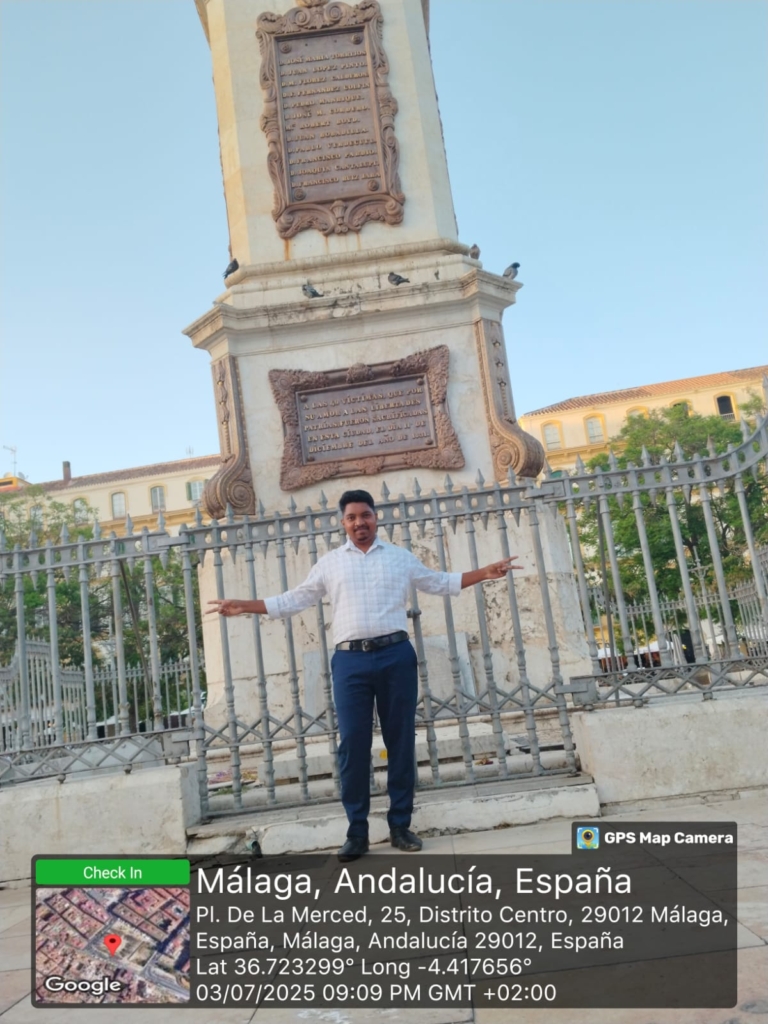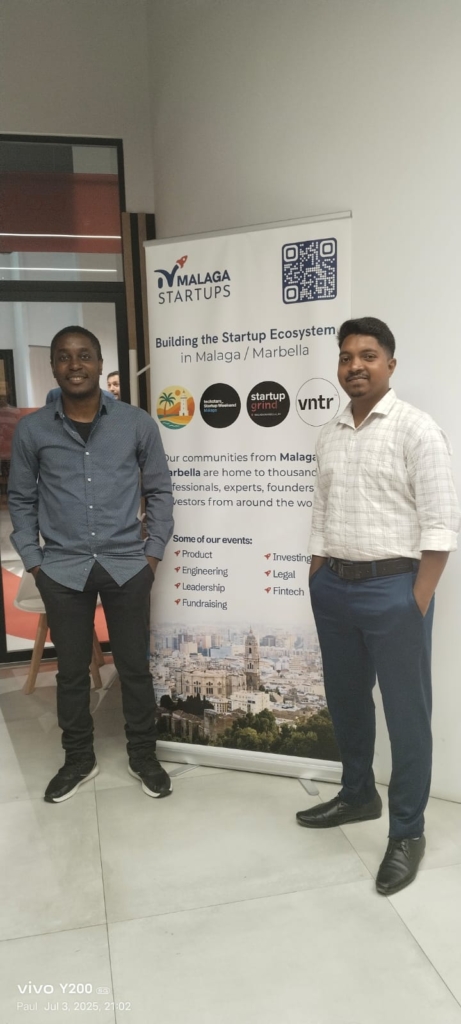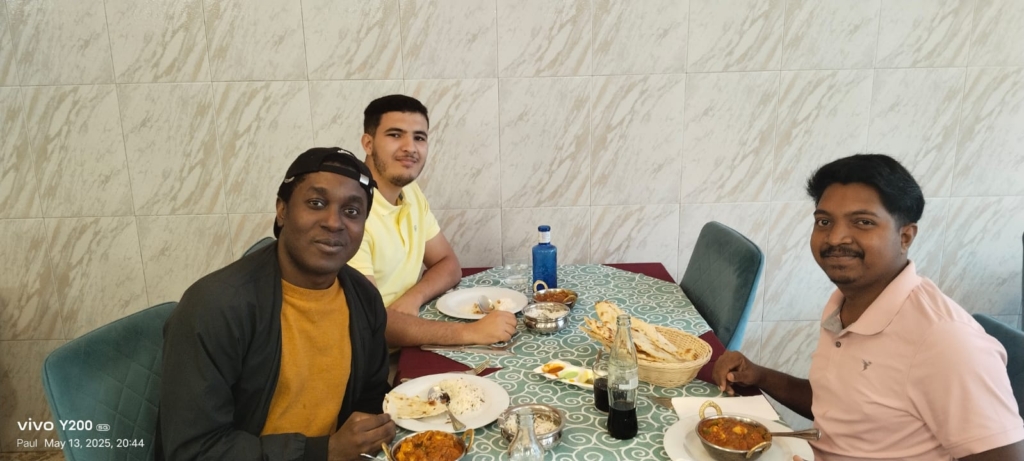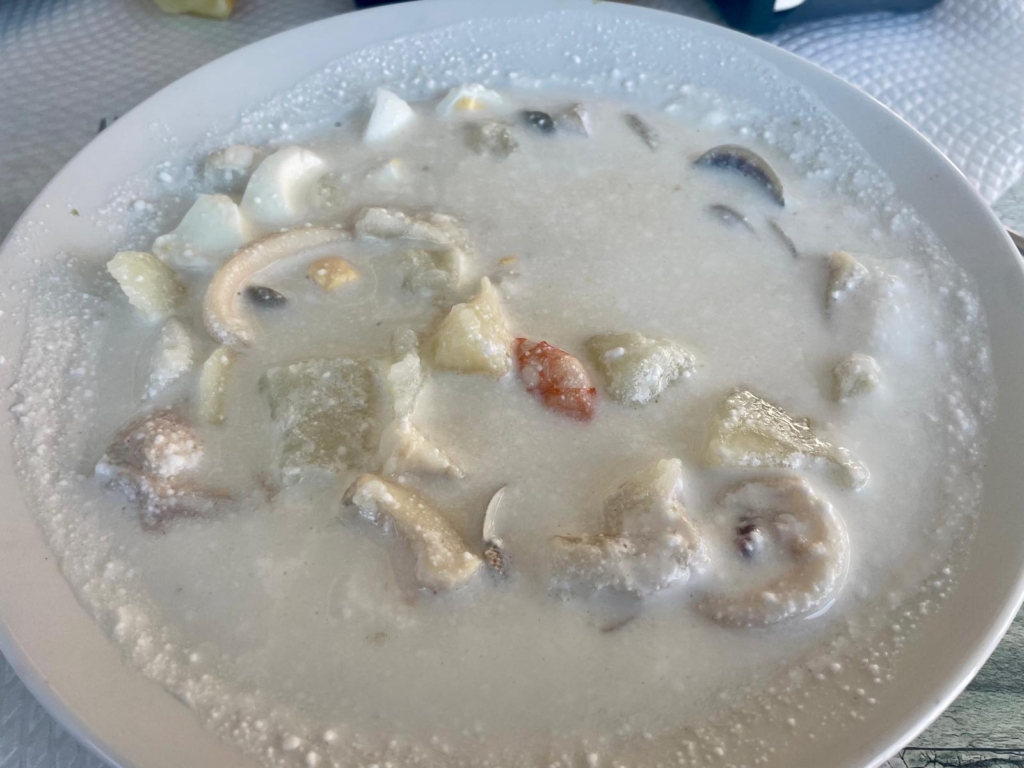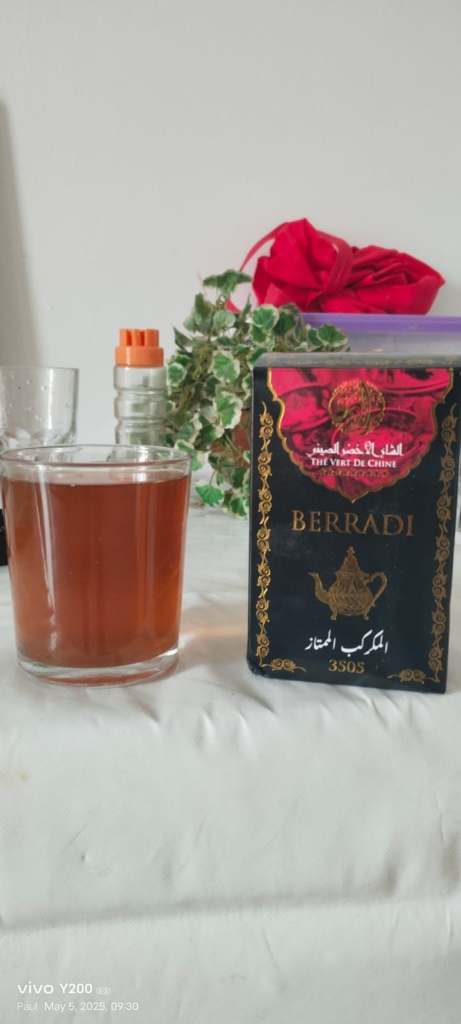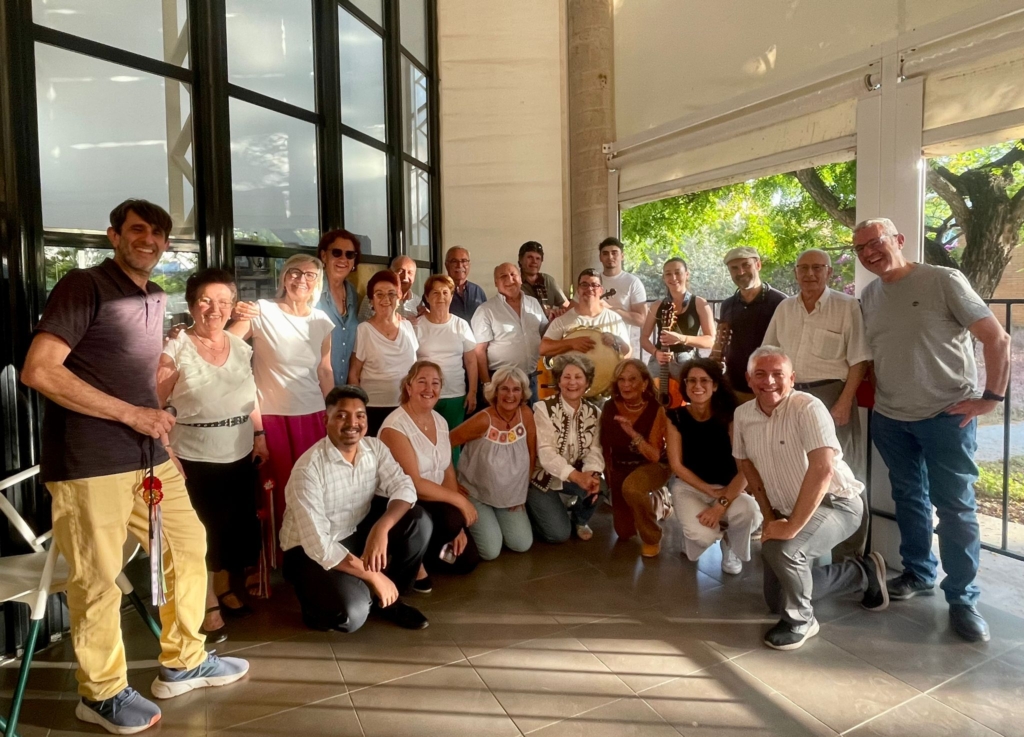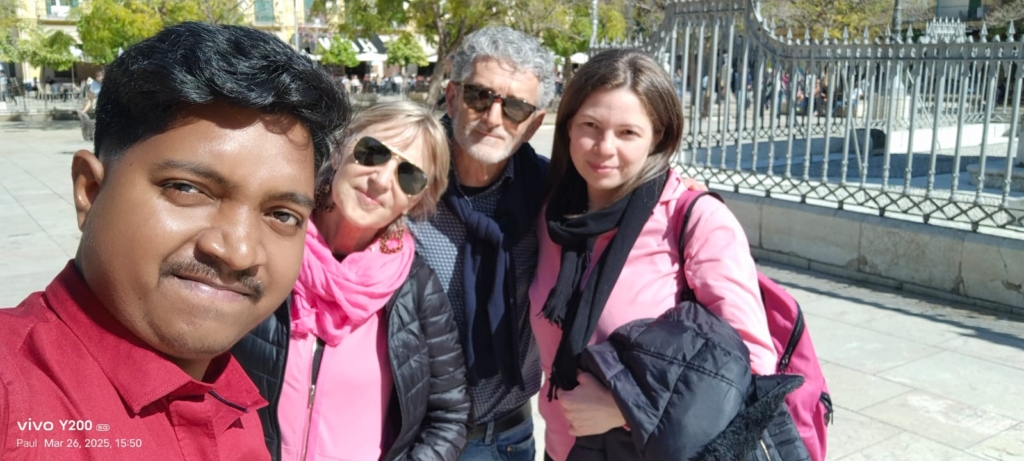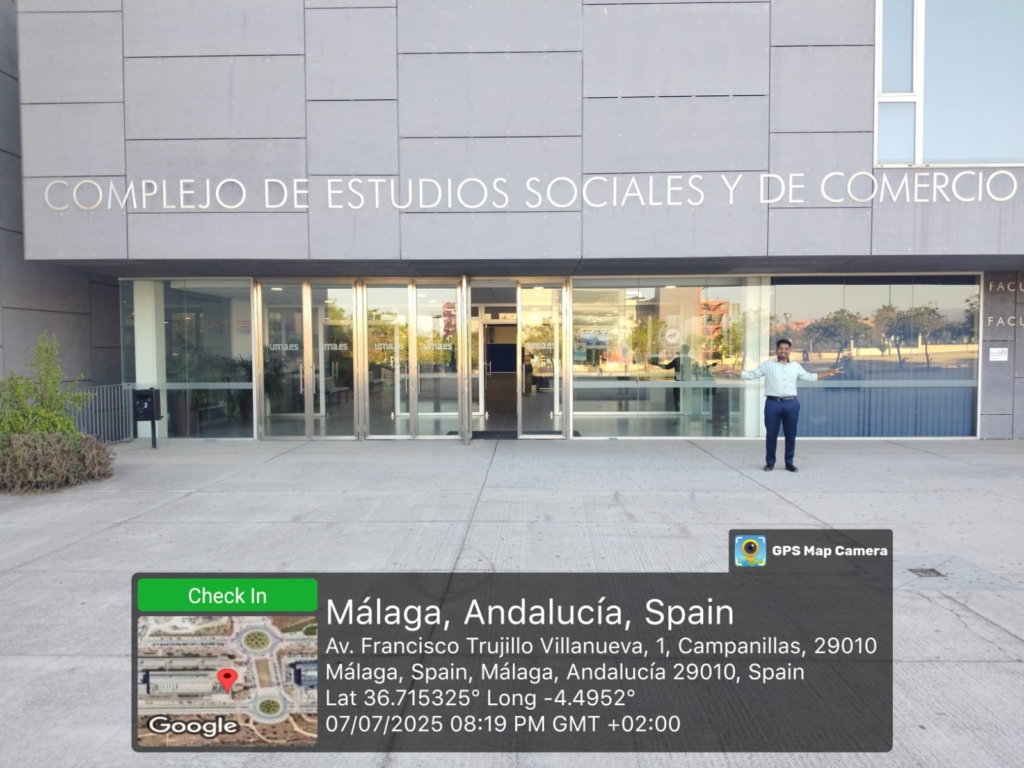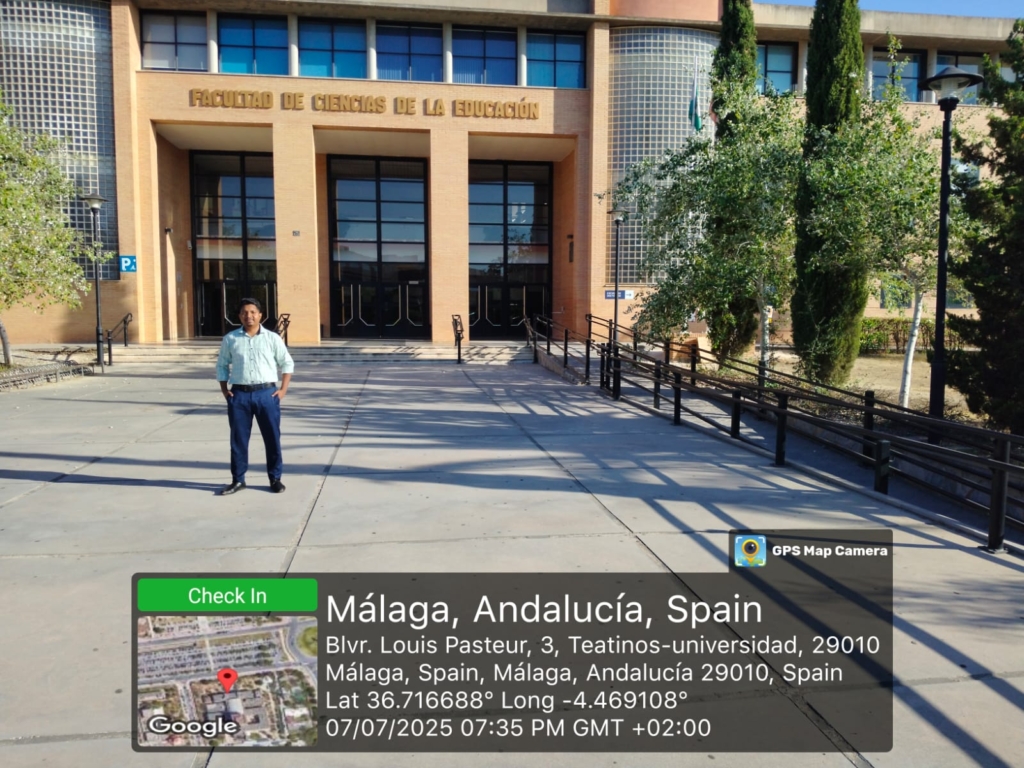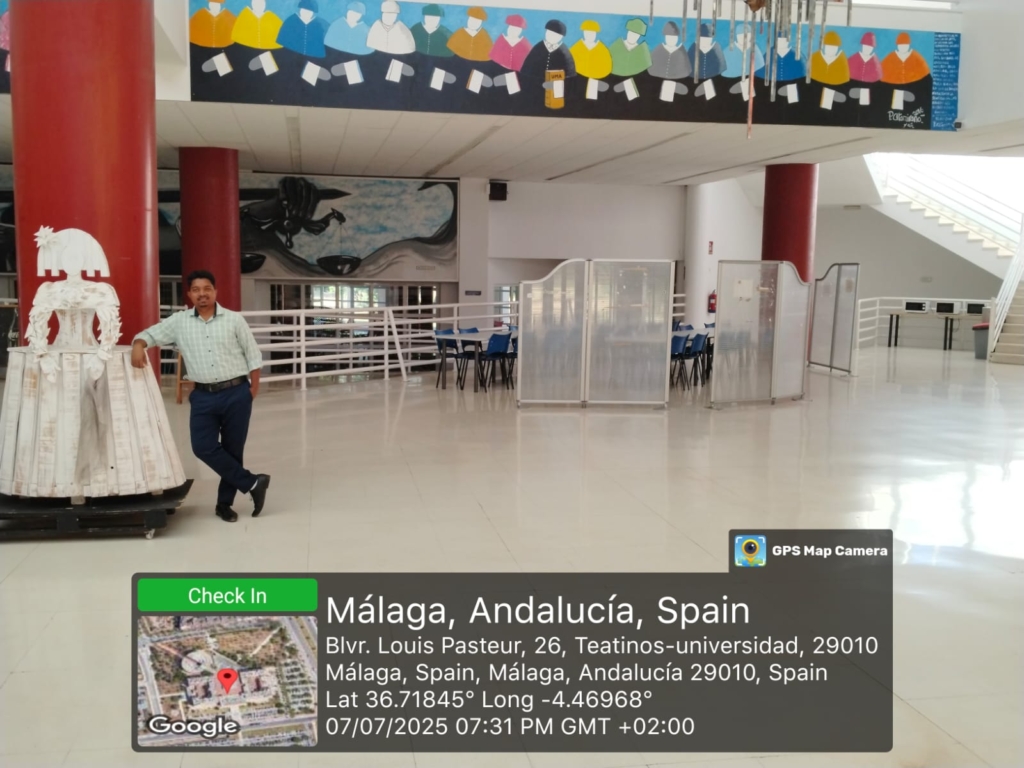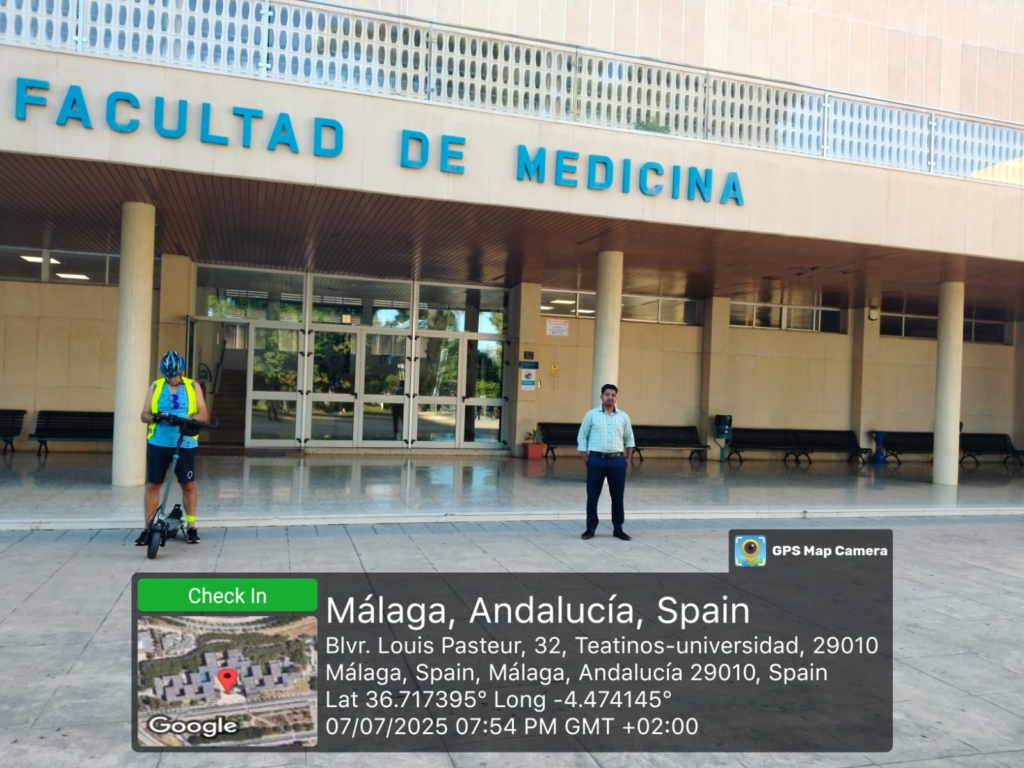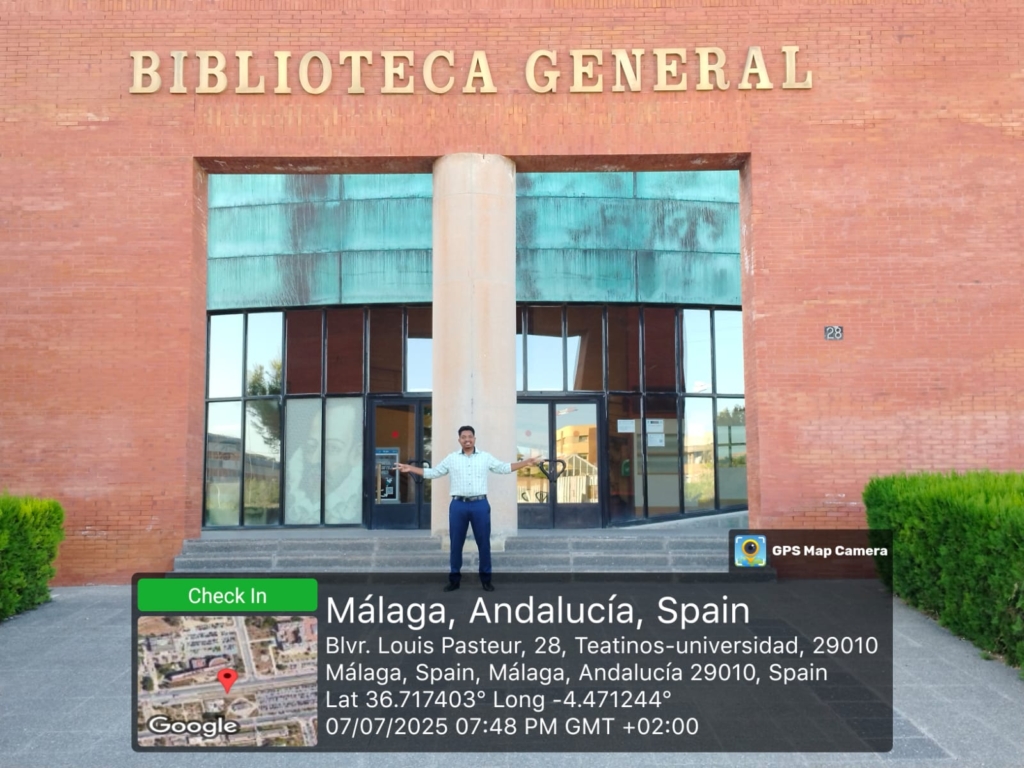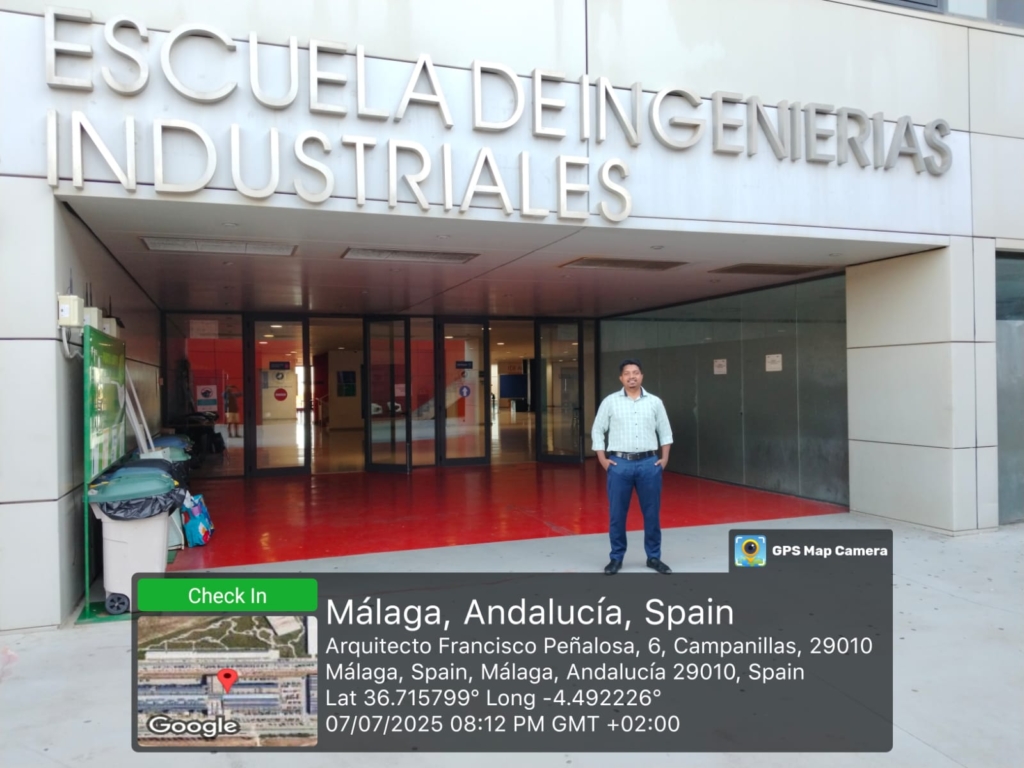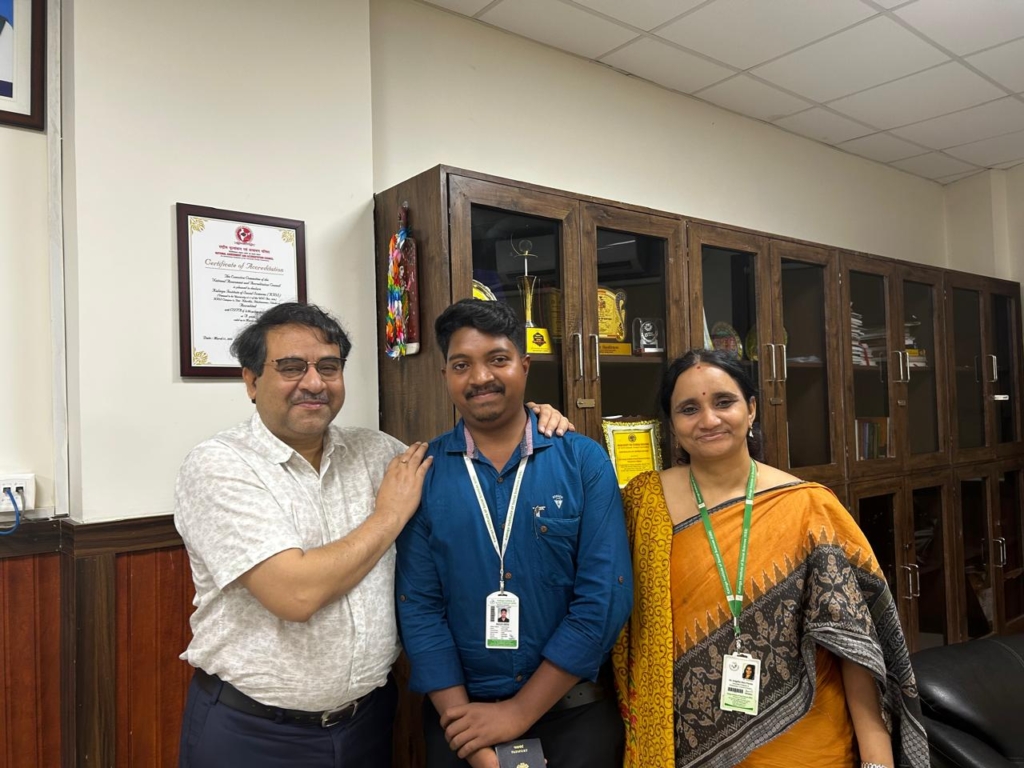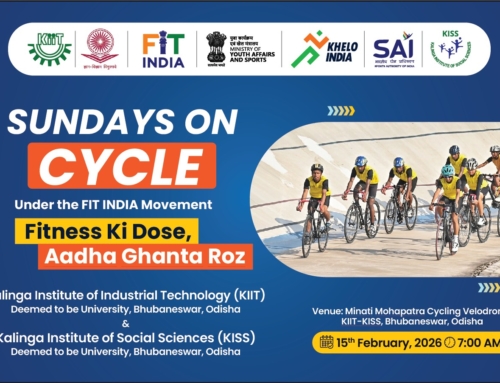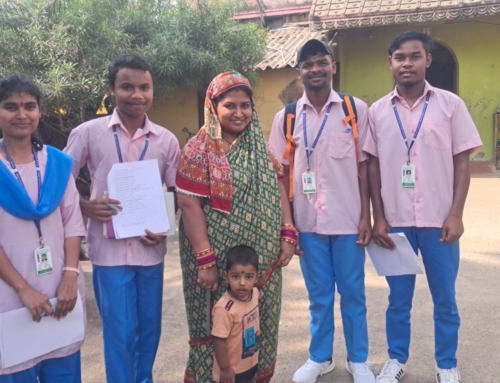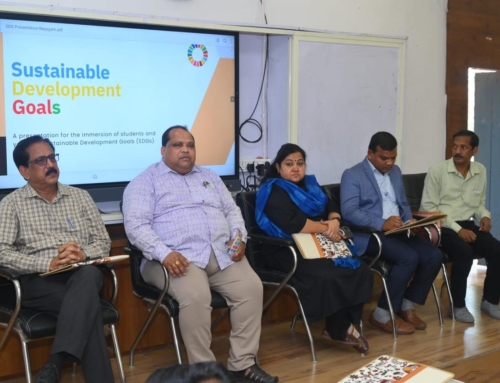By Paulus Oreya, PhD Scholar, School of STRM, KISS-DU
Journey Overview
This was my second solo international travel experience. I began my journey on March 11, 2025, with a domestic flight from Bhubaneswar to Maharashtra, followed by an international flight from Mumbai to Istanbul the next morning. Turkey served as my layover country. Upon arrival in Spain at 6:00 PM local time (9:30 PM IST), I was warmly received by my co-supervisor, who escorted me to the hostel campus of the University of Málaga (UMA).
First Day at UMA Hostel Campus
My first day began with registration at the front desk, where I completed formalities including the security deposit and received basic household items. I was issued a university debit card and purchased groceries from a nearby supermarket to settle into my new environment.
Hostel Life in Málaga
I stayed at the university residency, sharing an apartment with two friendly students from Equatorial Guinea and Morocco. They helped me understand the residency rules and made my transition smooth. The hostel was a vibrant space with both local and international students, fostering a multicultural atmosphere.
Building an International Circle
During my stay, I formed friendships with students from Spain, Morocco, Italy, Sweden, Serbia, and Equatorial Guinea. I proudly shared insights about KISS DU and KIIT University, including achievements in sports like rugby, kho-kho, and archery, as well as initiatives such as Kanya Kiran, the Guinness World Record, and the Art of Giving movement. My peers were fascinated by the scale and impact of the world’s largest tribal university.
University Culture at UMA
The University of Málaga is one of Spain’s leading institutions, with multiple campuses, modern infrastructure, digital libraries, and vibrant cafeterias. Unlike Indian universities, UMA does not enforce a dress code and emphasizes experiential learning. Students often travel for fieldwork, and the university organizes a variety of academic and cultural activities.
Market System in Málaga
The market system in Málaga differs significantly from India. Prices are fixed, and bargaining is uncommon. In supermarkets, services operate on a First Come, First Served (FCFS) basis, contrasting with the more flexible customer service norms in India.
Social Life and Language
Spanish is the official language, and English is spoken primarily by those with international exposure. Despite the language barrier, locals were kind and helpful. I experienced this firsthand when a couple assisted me in purchasing metro tickets during my first local commute.
Family Preferences and Lifestyle
Spanish families typically have one or two children, though many now opt not to have children due to rising living costs—especially housing. Interestingly, many families prefer pets, particularly dogs, and invest heavily in their care.
Life After Retirement
The retirement age in Spain is 66 years. Retirees often hire domestic help, and the government provides affordable old-age facilities. Private agencies offer enhanced services at higher costs, catering to varying needs.
Nightlife and Beaches
Spain is renowned for its vibrant nightlife. Málaga offers dazzling lights, international cuisine, bars, and clubs. The city’s location along the Mediterranean Sea makes its beaches a major attraction, drawing tourists year-round with their cleanliness and scenic beauty.
Local Cuisine
Spain’s culinary culture is distinct, favoring semi-cooked food with minimal spices. Signature dishes include Paella and Tortilla de Patata. Alcohol and smoking are common and not heavily regulated.
Festivals in Málaga
Spain has a rich Christian heritage, with major festivals like Easter celebrated over ten days. Christmas is another highlight, marked by university closures and beautifully decorated streets.
Challenges Faced
Language was the primary challenge. As a non-Spanish speaker, I relied heavily on Google Translate for communication in supermarkets, ATMs, metro stations, and the hostel. Fortunately, local students were supportive, helping me adapt quickly.
Places Visited
I explored several culturally and historically significant sites, including:
- Frigiliana
- Mijas (one of Spain’s oldest villages)
- Nerja (“Balcony of Europe”)
- Benalmádena
- Morocco (cross-border visit)
- Rincón de la Victoria (Museum)
Conclusion
My visit to Spain was a transformative experience—academically, culturally, and personally. It deepened my understanding of global education systems, enhanced my intercultural communication skills, and allowed me to represent KISS-DU on an international platform. The journey was filled with learning, friendship, and unforgettable memories.



